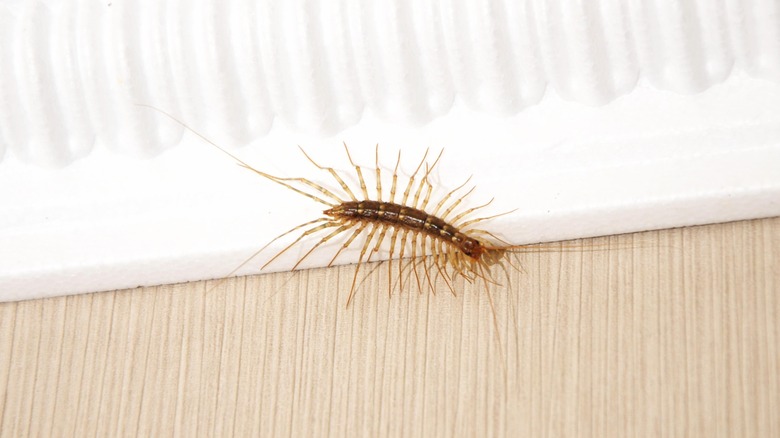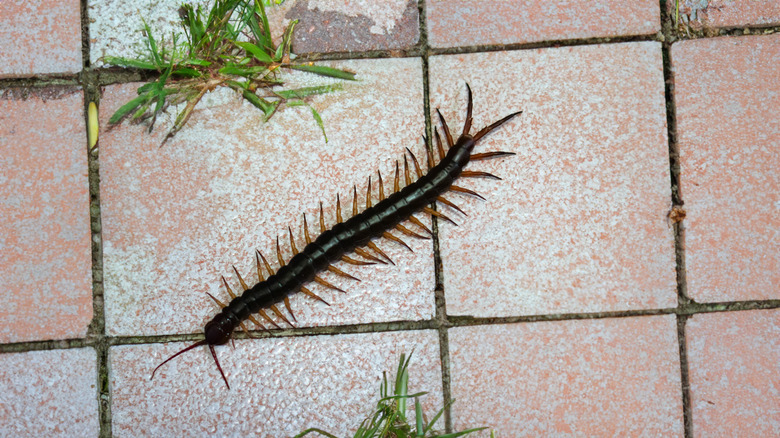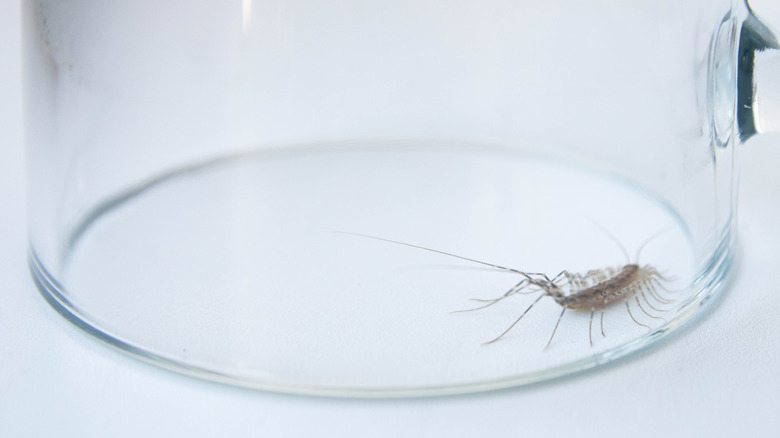Why You Should Reconsider Squishing The Next Centipede You Find In Your Home
You see something suddenly dashing across your floor and, instinctively, you aim to squish it. Centipedes, which can be rather frightening-looking, are a common bug to find crawling around during the evening hours in the basement of a home. Most often, though, these critters are not likely to be harmful to you and, in many ways, can actually be helpful at keeping more problematic pests out of your home.
Refrain from stepping on them or swatting these tiny arthropods. Most of the time, they won't sting people. If they do, it may hurt a bit, but for most people, it isn't likely to cause a health complication. Though some people may have a sensitivity to them, you'll likely find they are more welcome company in your home than other critters that the centipede is preying on. If you simply cannot tolerate their presence, there are natural and pesticide-based treatment options to get rid of centipedes. Before you do that, however, consider the benefits of having centipedes in your home.
The benefits of centipedes
Though they lurk in dark spaces and come out at night, centipedes are, in fact, mild-mannered critters. Centipedes prey on insects and other bugs you don't want around your home, including flies, cockroaches, carpet beetles, silverfish, spiders, and larvae. Typically, centipedes keep out of sight, but when they are seen frequently, that could indicate the presence of other, more problematic bugs. You may have a fly or spider infestation, for example. In that way, centipedes act as a warning that it may be time to find a pest control strategy for these other invaders.
During the colder months, centipedes seek out warmth and will reproduce in heated areas. They cannot survive outdoors in the winter. That's why, during the fall, you're more likely to notice their presence than other times of the year. That's a good thing, though, as other pests are also moving indoors at this time of the year to escape the cold. With centipedes present, you'll have less risk of a significant infestation.
What to do if you want to get rid of centipedes
As noted, there are numerous good things about centipedes, but there are still some reasons to be leery of them (and to make sure they stay under control). First, note that they don't bite but sting, using their hollow front legs that pinch prey and then inject venom into them. For some, especially those with an allergy to other insect bites, it's worth it to invest in a few methods to repel them.
For natural methods of getting rid of them, consider capturing them (even a simple cup placed over them and then moving them outdoors can work). You can also reduce humidity levels in the home, which will make it less inviting to these pests in warmer months. Also, a strategy for keeping all insects out of your home involves making it hard for them to get in to begin with. Seal your home, including all cracks and tiny openings along the foundation walls, windows, and siding. If you really need to be pest-free for any reason, pesticides can be an option. Look for insecticides in either a powder form or a spray. Then, place in areas where you've seen the bugs.


